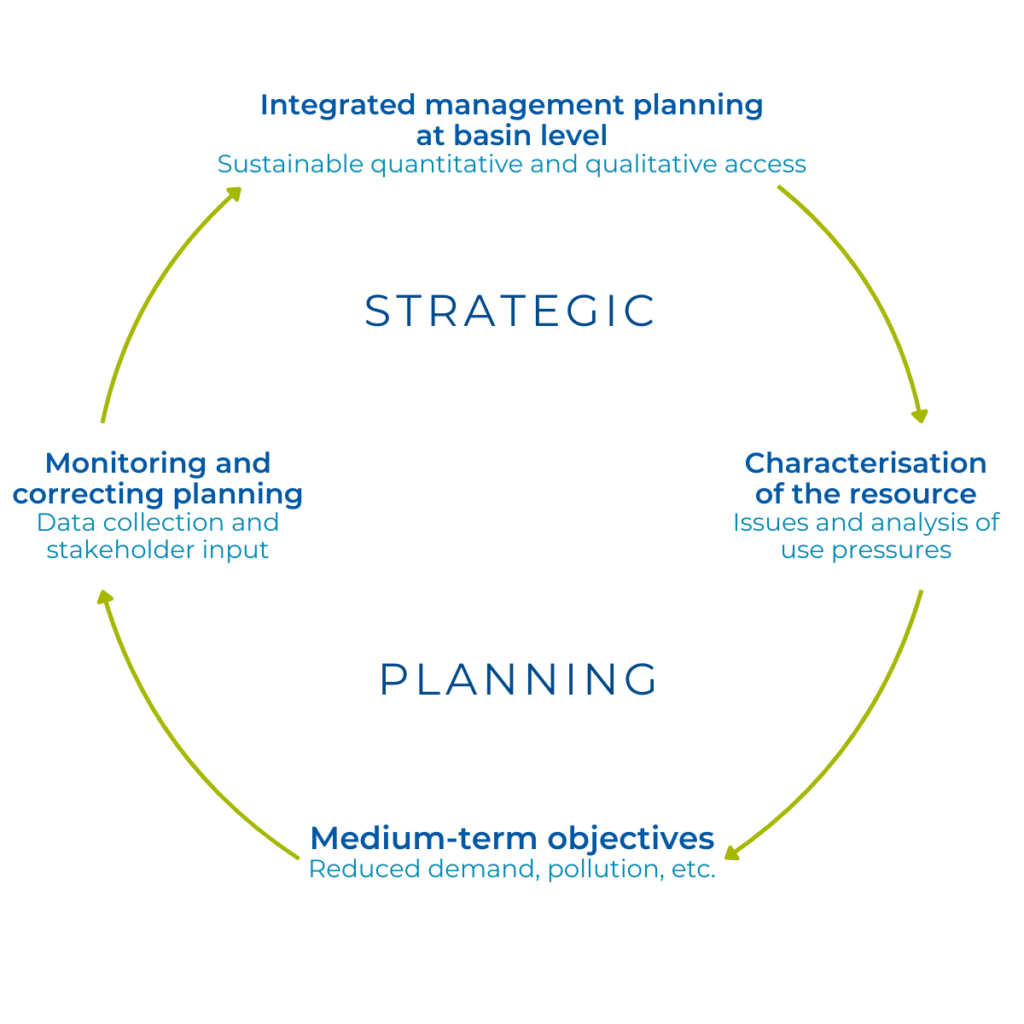INBO’s Members and Partners advocate the implementation of integrated water resource management at basin level in order to achieve sustainable and efficient changes in the use of water resources.

Thanks to a global approach developed jointly by all the stakeholders involved, the challenge is to provide sustainable access to water in sufficient quality and quantity for all uses and for the environment. This requires long-term strategic planning.
Against a backdrop of unprecedentedly rapid climate change, the water crisis cannot be considered in isolation, as it is linked to a series of global environmental, economic and social challenges.
Understanding it in all its dimensions requires us to consider a wide range of issues, such as high population growth and rapid urbanisation, the viability of ecosystems, water, energy and food security, and maldevelopment characterised by unsustainable consumption and production patterns.
To achieve this, INBO considers basin management plans and the associated programmes of measures and investment over several years to be a key tool.
Built on a forward-looking approach, they are based on an analysis of current pressures and an estimate of future pressures. They take into account the pressures of domestic, agricultural and industrial uses, including energy, on surface water and groundwater, in terms of abstraction, consumption and pollution.
They also take into account the impact of the development of hydraulic infrastructures and dams, land use, climate change and the risks of natural disasters, disputes and open conflicts linked to water.
Reducing demand for water; combating pollution; protecting and restoring aquatic ecosystems; developing non-conventional water resources (reuse of wastewater, rainwater harvesting, etc.); allocating volumes of water and, above all, distributing the benefits derived from exploiting water resources, are all objectives set by these medium-term plans.
The programmes of measures set out the actions required to achieve these objectives. They are accompanied by financing plans and investment programmes. Finally, the implementation of these actions is evaluated and a new planning cycle follows, taking into account the lessons learned from the previous cycle.
Strategic planning is therefore a cyclical, iterative process.

The stages of diagnosis, planning, implementation, evaluation and correction follow one another and are perfected with each cycle. In a constantly changing environment, it is a guarantee of efficiency and adaptability, all the more effective when it can rely on reliable information, concerted governance and sustainable funding mechanisms:
Concerted Governance
Information Systems
Multi Financing
